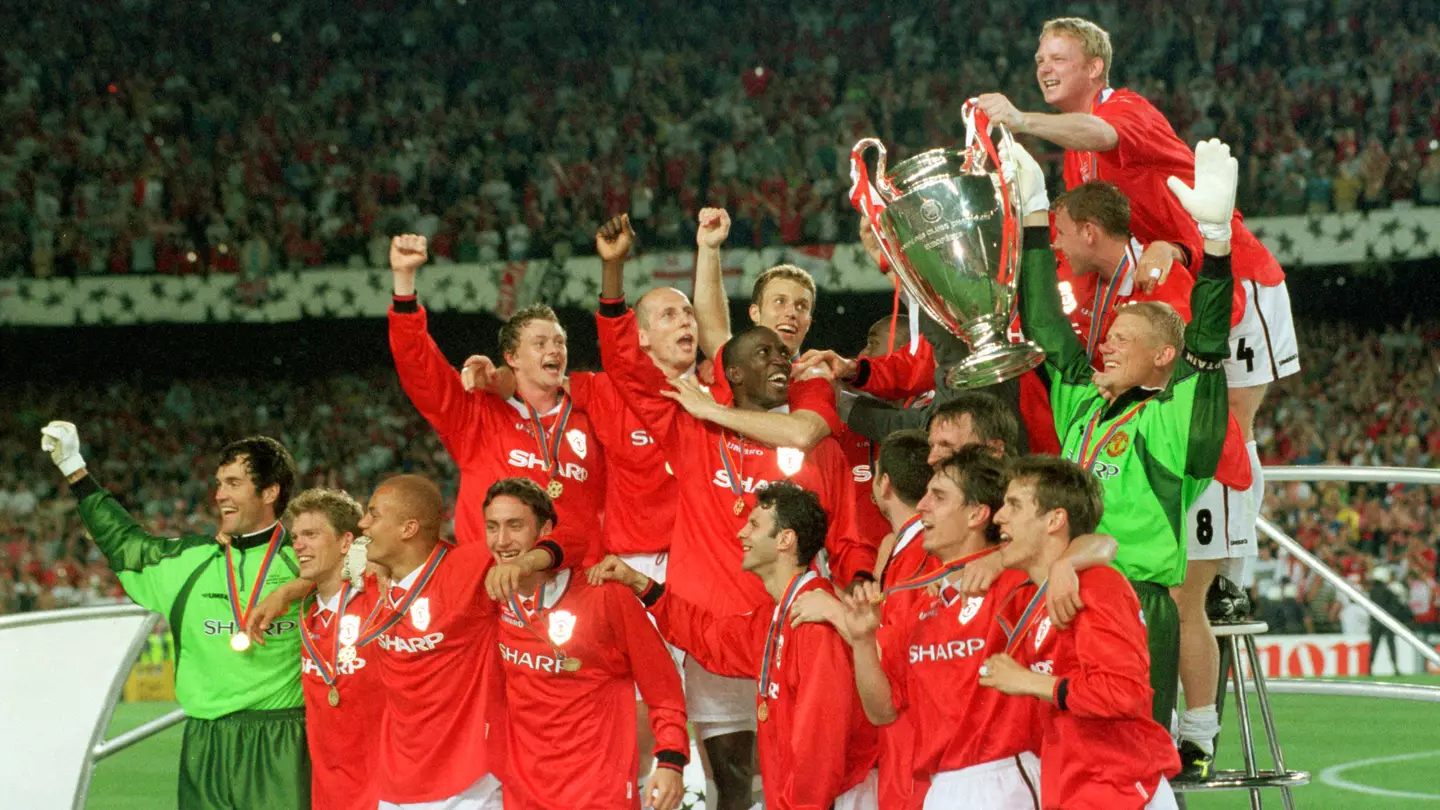
The social media age has seen the once heavily prestigious term of “The Greatest of All Time” or “G.O.A.T” thrown around very freely and often meaninglessly, not only for individual players but also teams — disregarding actual success in favour of popularity and hypotheticals.
As with most trends, the media bought into it over time — creating dialogue and debate about the greatest this or greatest that. Perhaps most frequently, the status of the greatest Premier League team of all time has been under the loop. With the giant that is Manchester United very much dormant for the best part of the last decade, arch rivals Liverpool and Manchester City have been taking the headlines.
As the famous saying goes, “when the cat is away, the mice will play.” This is a very good representation of that spoken word. Recency bias doesn’t take very long to kick in and all of a sudden, the achievements of United’s 1998/99 team — for example — get put on the back burner.
The achievements of course being The Treble — winning the league, domestic cup (FA Cup) and the Champions League in one season. Still, after multiple 90+ point league hauls and deep European and domestic runs for both Liverpool and City — including a Champions League triumph for the former — that United side is still the only one to have done a clean sweep.
Advert
But it often feels as though the respective shortcomings of Jurgen Klopp and Pep Guardiola get more plaudits. Both City and Liverpool have been hunting down The Quadruple in recent years. To be fair, they both have come quite close. Not close enough, though.
.jpg)
The best Guardiola’s City have been able to come up with has been a couple of domestic double’s and a domestic treble. Europe has been their kryptonite. As for the Anfield side, they won Europe’s most decorated competition in 2019 and then the league the following season. They were on for the quadruple this season but had to settle for the Carabao and FA Cup.
The moral of the story: it’s not easy. Being the greatest and most accomplished team of all time is earned not given. It takes a lot of components falling into place simultaneously. It takes outstanding character. Obsession with winning. Leadership. Youth. Elite man management. All things that the above teams unarguably have, but never all at the same time.
That’s why Sir Alex Ferguson is relentlessly hailed as the greatest by the United faithful and most neutrals. For any of his flaws that rivals and enemies love to point out, he cracked the formula. He led his team to three promised lands in one season.
That United side worked relentlessly to etch themselves in global football folklore, not only just English. And until their winnings are surpassed or even matched, they deserve to be spoken of in a different breath to everybody else.
With that said, let us dive deeper into everything that United had going for them in order to put together football’s ultimate success story:
Sir Alex in high pressure situations
Having a figure of Sir Alex’s stature in the dugout is almost like a cheat code. The man with the ultimate comeback story. He never backed down when his head was directly underneath the United axe in the early 90’s and he expected nothing less from those who suited up for him.
Ferguson was unbreakable in high pressure situations. The human example of pressure making diamonds. Every time he was faced with adversity or a big decision, it felt almost like another opportunity for the diamond to shine even brighter. As with every human, he too had his fair share of miscues. But in the end, the gold far outweighed everything else.
In that 98/99 season, United were in a constant back and forth with Premier League holders Arsenal. One of Europe’s elites, the Gunners had what it takes to stand up to Ferguson’s United. They had championship mettle, domestically at least.
After a whole season of either leading or having to claw back, United were second in the league — three points behind the London side — with as many games left. Ferguson had an embarrassment of riches at his disposal, especially up front, and he never once went away from the principles he had established throughout the season. He continued to rotate his four man strike force of Andy Cole, Dwight Yorke, Teddy Sheringham and Ole Gunnar Solskjaer into the final straight and they each repaid his faith.
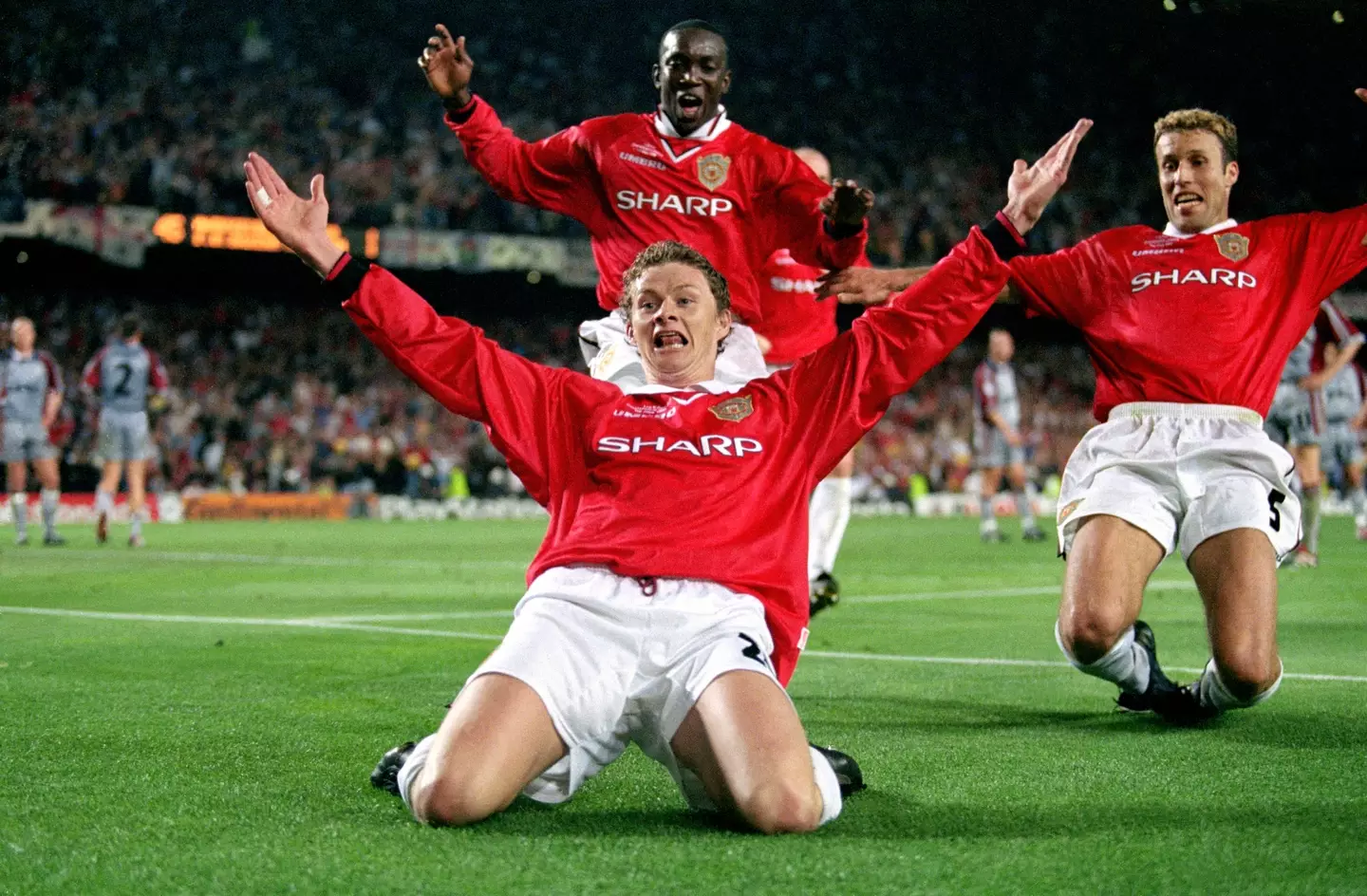
A week later, Arsenal lost to Chelsea while Yorke sent United past Middlesbrough to go level with the Gunners. Back at the summit, United needed four points from their last two games to clinch the title. A 0-0 draw at Blackburn was hard earned and put United three points from the title ahead of the season finale at the Theatre of Dreams against Tottenham.
The Reds went on to win that game 2-1. Half-time substitute Cole scored in the 48th minute, with one of his first touches, to secure United’s fifth league title in seven seasons and the first of eventual three major trophies that season.
That classic ending of the Barclays campaign showed Ferguson’s meticulous self in a nutshell. He always simply refused to fold and it abundantly rubbed off on his team. United were the kings of the comeback that season. Just when you thought they were dead and buried, they rose.
The other thing that stood out indubitably about that final stretch of games was the United manager’s exceptional man management. Like a master in psychology, Ferguson knew his personnel and how to press their buttons.
On the last day of the Premier League season, Solskjaer was an unused sub. But what Ferguson indirectly said to him during the game propelled him to go on and score the winner in Europe just a few weeks later.
Elite man management
Back in 2020, when the Norwegian sniper was still United manager, Solskjaer was a guest on the High Performance podcast, hosted by BT Sport’s Jake Humphrey. On there, he told an anecdote from half-time of the Spurs game that won them the league in ’99 and underlined Ferguson’s ability to play mind games with his players that in the end benefited the team.
Tied at 1-1, United were going to make what they were hoping would be a game winning sub. It was between Solskjaer and Cole. As the debate went on, the Scot went with the latter — vocally expressing to his staff not to worry and that if push came to shove, the Norwegian striker was available and he could go on and win them the game.
Cole scored three minutes after coming on and United won. Solskjaer never got to see the field that day. But self-admittedly, he left the stadium after that game feeling on top of the world. Sometimes, it was not about the impact you make on the field, it was about the impact your boss knew you could make — the reputation.
A clinical finisher, Solskjaer knew what he brought to the table in that team. Evidently, Sir Alex did too and he made a point for his super-sub to know that. As a result, when Solskjaer’s number was called late in the second half of United’s Champions League final against Bayern, down 1-0, he was ready. How he responded will forever be engraved in the club’s history. Coming from behind was the club’s M.O. that season and it gradually became a part of the DNA.
In the modern era, Guardiola became known for rotating and taking advantage of his deep squad in his time at City. Looking at historical United teams under Sir Alex, that is certainly one of the keys to success. But the way Ferguson was able to motivate players and squeeze every ounce of potential out of them — and sometimes even more — might never be replicated.
No matter the circumstances, nine times out of 10, whoever Ferguson selected — in whatever position — put in a shift for him and played out of their skin.
Heading into the Champions League final, United were without Paul Scholes and Roy Keane — both suspended. United had to play the mighty Bavarian giants without two midfield pillars.
They went on to suffer in midfield with David Beckham and Nicky Butt filling in centrally. But they never stopped fighting. They may have been positionally outclassed in midfield but they never gave up in a perfect example of hard work either compensating for the lack of talent or beautifully complementing it.
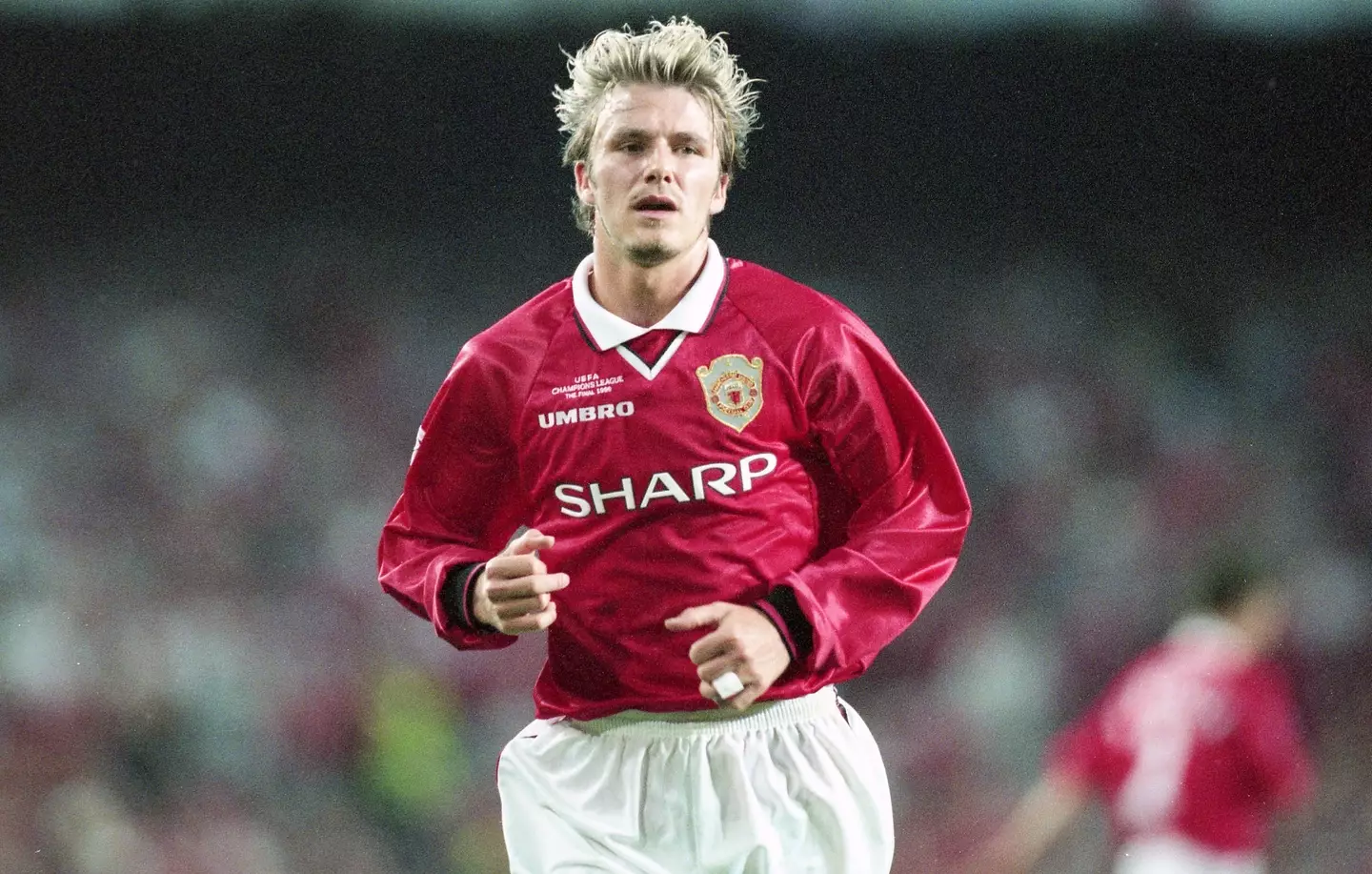
United would not bow down in that game, nor the FA Cup semi-final against Arsenal where they really had to fight tooth and nail to keep the treble alive. The next man-up mentality that Ferguson had instilled, along with the confidence in every squad member’s abilities, was contagious and played a massive part in carrying the Reds over the line.
Mix of leadership and youth
The Class of ’92 were already established in the first team and English football by the time United touched down in Barcelona for the Champions League final in May, 1999. But even still, they weren’t aging veterans. Ferguson still fielded a team with five starters being 25 or under.
The Scot was not afraid to rely on his youthful spine in crucial moments, mostly because all of his teams were built on a healthy mix of experience, leadership and youthful bounce. Every time a youngster was introduced into the first team, seasoned leaders were towering over them.
During that era, the captain’s armband was a rite of passage. It was earned after a player proved that they were able to survive and excel in tough environment’s filled with enormous characters and egos. Bryan Robson, Eric Cantona, Roy Keane, Peter Schmeichel, Gary Neville, Nemanja Vidic, Rio Ferdinand, Patrice Evra, Ryan Giggs. Not a single question needs to be asked of any of their credentials for the role.
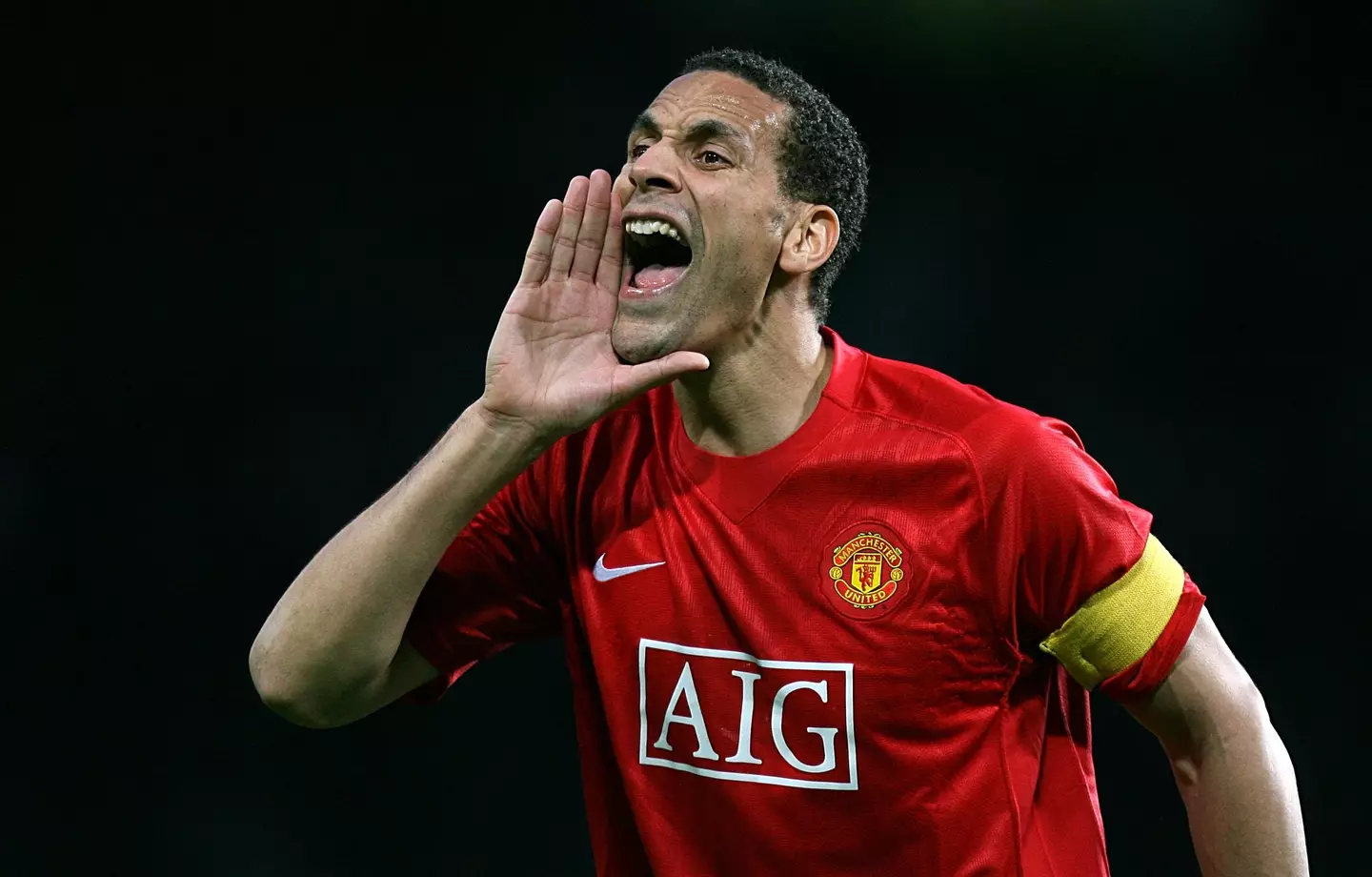
Ferguson had created such a well-oiled machine. It was the type of environment that you wanted youth to be around — to learn from, to soak in all of the information and professional habits. It was also a winning machine. All of those things contributed to so many great academy products. Now, it is different — at United and most of their rivals.
Both Liverpool and City have the winning environments down to a T. Sometimes, though, they seem to be missing home grown blood. Players who have come up through the ranks to form the spine. Characters that know all about the culture and what it is like climb from the bottom to the top within.
As in any job or aspect of life, you learn best when someone leads by example. In a football dressing room, you have to see another player shed tears of joy or sorrow in order to truly grasp what it means to play for a club. You can’t expect an outsider to come in and be ready to suffer for the badge when it is needed. That has to be passed on.
Modern clubs often refuse to go down that route and end up falling at the last hurdle. Not for the lack of leadership or quality, but for the lack of having that someone who will lift everyone by the scruff of the neck and demand for the standards and fight to be upkept — knowing what it means to the club and the community.
Sometimes, you can buy that. Vincent Kompany for City was a great example, as were Cantona, Keane, Vidic, Ferdinand and Evra for United. But in City’s case, one is not enough. Liverpool’s too. That’s another factor which separates that 98/99 United side from the those of the rivals in the modern age.
Willingness to suffer
Fans and pundits nowadays put a tremendous emphasis on style of play, as though just winning is not enough. Often times, if you don’t win in style you don’t get as much credit.
Liverpool and City both have distinctive styles of play that they stick to relentlessly. Very rarely will you see either side break out of character — sometimes to a fault. United under Ferguson, particularly in that treble winning season, were different in that they were not hell bent on always playing their style of football.
Ferguson’s ability to read the game and adjust meant United had different ways of imposing themselves on football matches and they were not afraid to suffer if it resulted in winning. Their tenacity was unmatched. Defensive resilience was laid firmly within the foundations that the team was built on.
The willingness to suffer stemmed from the leadership and the academy products having previously bled for the club at varying age groups coming up. Alongside the manager, that’s what instilled the never say die attitude.
Many would have folded and rolled over after being dominated for the best part of 90 minutes, like United were at Camp Nou against Bayern in the Champions League final. United didn’t. All they needed was to stay in the game and at 1-0 down. At that point, you’re never out of it. All they needed was three minutes in added time to swing the pendulum in their favour.
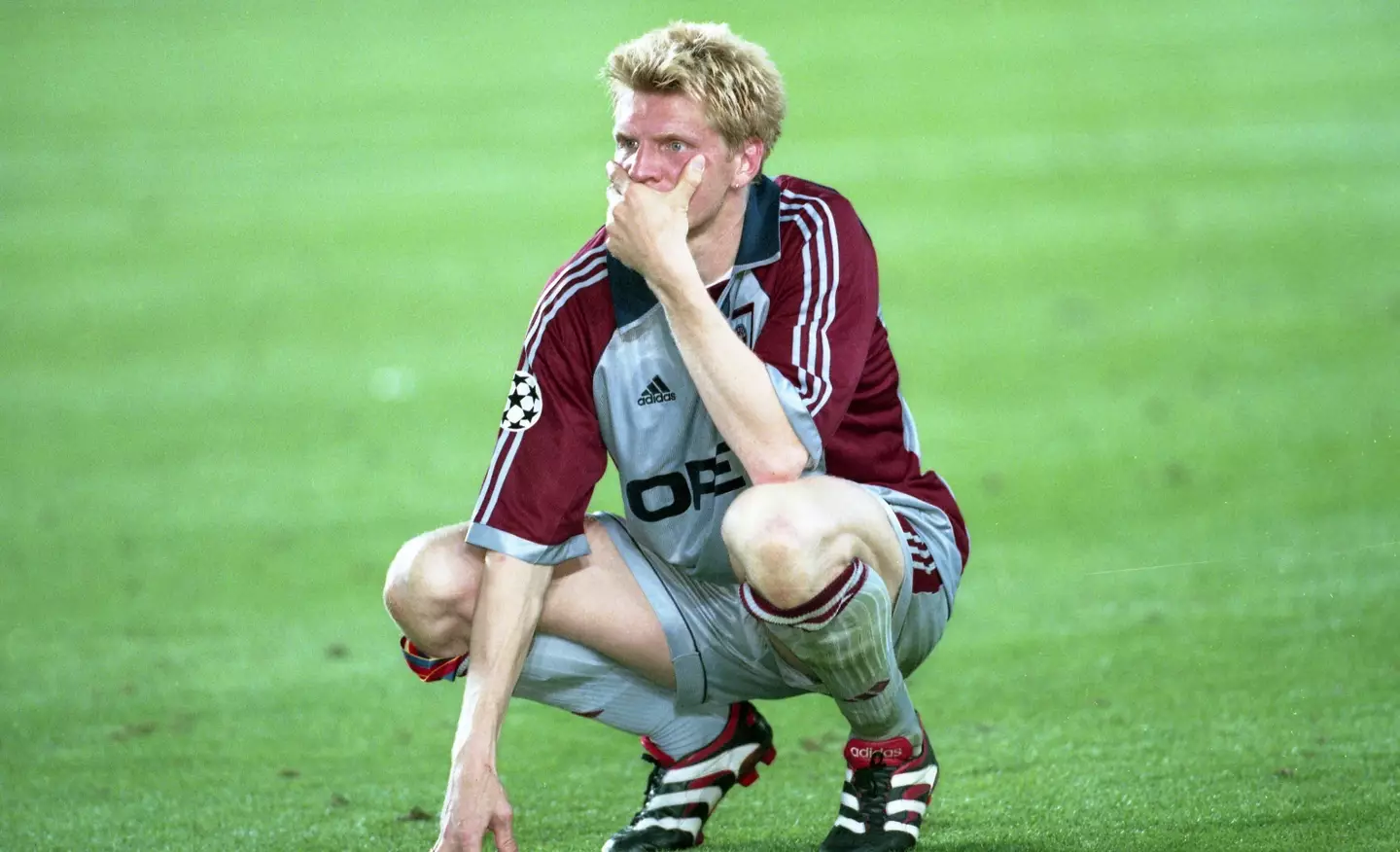
They were never discouraged. Although Sir Alex admitted that he felt somewhat resigned at times — that it simply felt like it was not going to be their year — he never let his players feel that. They kept digging and eventually struck gold.
A great example of such a team today is Carlo Ancelotti’s Real Madrid. They were down and so close to being out in pretty much every tie on their way to lifting Europe’s most valuable club trophy. But the Italian’s old school way of management — designed from a cloth eerily similar to Ferguson’s — saw the Los Blancos rise past every type of adversity. At times it wasn’t pretty, but the suffering produced the ultimate success — a league and European double.
The truth is, the best teams are never all about strict patterns of play and tactical nous. Very often, they are built on solid defensive principles, character, desire and individual brilliance. This year, Real Madrid had all of the above with the likes of Karim Benzema, Luka Modric and Vinicius Jr. leading the way.
Over two decades ago, United had all of the intangibles in abundance. Then, on top of that, there was that Giggs solo effort in the extra-time of the FA Cup semi-final against Arsenal to drag the Reds over the line. There was that Cole moment after half-time against Spurs. There was the fight and sacrifice of Scholes and Keane in the Champions League semi-final against Juventus. Down 2-0, United were dead but somehow still breathing.
Keane’s magnificent header in Turin gave them life. Cole stepped up again when needed to book United’s tickets to Spain. Keane and Scholes both sacrificed their final berths by getting booked and suspended.
And of course, that night in Barcelona. Sheringham’s equalizer and Solskjaer’s winner — at the literal death, with the last kicks of the game. United truly did the unthinkable. As we now come to find out, they achieved something that is virtually impossible to replicate — no matter the resources or coaching pedigree.
Over the best part of the last two decades, there have been a number of occasions during which United’s 98/99 were due their flowers. Other English clubs had their opportunities to also enter the Mount Everest of footballing greatness — but failed. That in itself should end all debates.
There is no wrong in appreciating good teams. Especially the two that are currently the very best England has to offer — head and shoulders above the rest. But there is also a fine line between good and great. As it stands, United are invincible and untouchable in terms of reaching football’s greatest summit. And in any debate revolving around the greatest team of all time, there is only one correct answer.
Topics: Manchester United, Sir Alex Ferguson, Champions League, Premier League, FA Cup, Manchester City, Liverpool